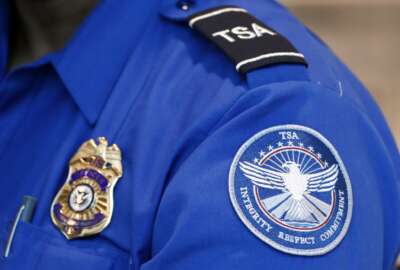Army CyberCom meets challenge of recruiting cyber warriors
Command Sgt. Maj. Rodney Harris, the senior enlisted advisor at Army Cyber Command, said the Army is doing a good job at finding the right soldiers with the nec...
wfedstaff | April 17, 2015 5:42 pm
The U.S. Cyber Command has put together about 133 types of teams to protect the Department of Defense’s network from cyber attacks.
Command Sgt. Maj. Rodney Harris, who became the senior enlisted advisor at Army Cyber Command in August, said the Army’s share of that defense — about 41 teams — is doing a good job at finding the right soldiers to do this type of work.
“To be a cyber warrior, it takes a special type of soldier,” Harris told Federal News Radio DoD Reporter Jared Serbu Tuesday at the 2013 Association of the United States Army Conference.
“To begin with, it takes a soldier,” he said. “When I say that, I mean the same solider that everyone else is looking for in the Army, the one that has the character and the values that we as an Army hold important and dear to who we are to maintain the trust of the American people. That’s who we’re looking for first.”
Beyond that, the Army is looking for recruits with the ability to understand the concepts that allow them to do the job they’re being asked to do. Many of the them are already in-service individuals, not just in the signal corps or military intelligence, but in a variety of areas who may have developed the necessary skills as hobbies, he said.
Army CyberCom has a variety of positions that require a number of different skill sets to fill in its workforce. CyberCom assesses each recruit, identifies those who match those needs and assign them to the proper training for its national mission teams and national combat teams.
“For the cyber protection teams, where we’re actively defending the Army’s network daily, we generally are trying to bring in soldiers that have had a least four years of experience operating the Army’s network, in order to be able to have the baseline concepts that they require,” Harris said. “So, we have a little bit more mature force in the cyber protection teams.”
As these soldiers receive their specialized training and gain experience protecting the Army’s network, the challenge for ArmyCom becomes one of retaining those individuals, since those skills and expertise have become a desirable commodity for industry.
Since the 35 Quebec military occupational specialty is just two-years-old, Harris admitted the Army hasn’t had to face that challenge yet, but he admitted it was a future concern.
“It takes generally two to three years of solid training before we can get one soldier fully qualified and ready to perform these teams. So, it’s a significant investment,” he said. “At the end of the day, that investment’s got to pay off for the Army, because every dollar we spend is a dollar that we have to invest wisely to make sure that we’re applying it towards the defenses that we require.”
RELATED STORIES:
Army faces era of ‘dynamic uncertainty’ due to CR, sequestration
Alexander: Morale of cyber workforce takes hit from shutdown
Copyright © 2024 Federal News Network. All rights reserved. This website is not intended for users located within the European Economic Area.





